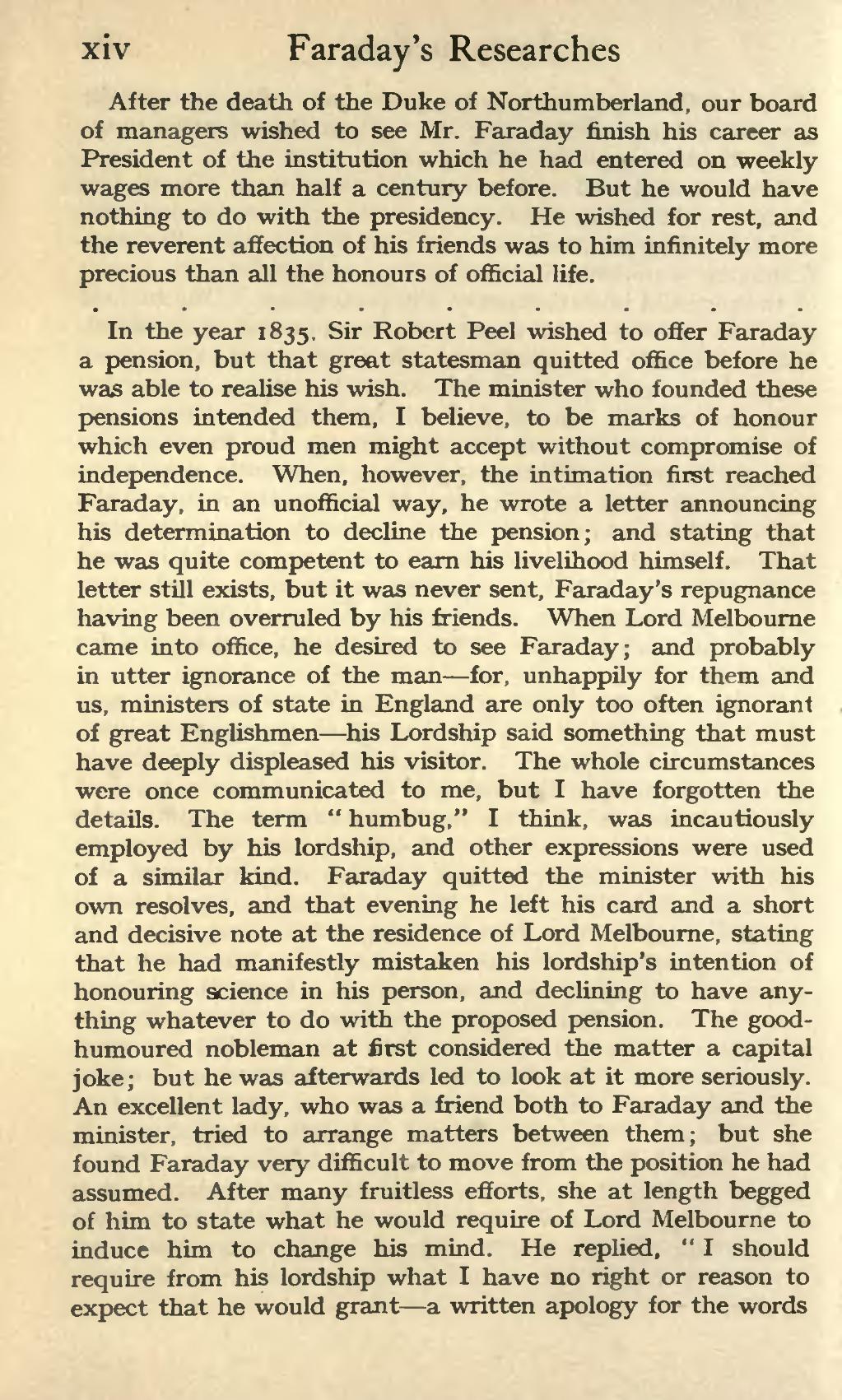After the death of the Duke of Northumberland, our board of managers wished to see Mr. Faraday finish his career as President of the institution which he had entered on weekly wages more than half a century before. But he would have nothing to do with the presidency. He wished for rest, and the reverent affection of his friends was to him infinitely more precious than all the honours of official life.
In the year 1835, Sir Robert Peel wished to offer Faraday a pension, but that great statesman quitted office before he was able to realise his wish. The minister who founded these pensions intended them, I believe, to be marks of honour which even proud men might accept without compromise of independence. When, however, the intimation first reached Faraday, in an unofficial way, he wrote a letter announcing his determination to decline the pension; and stating that he was quite competent to earn his livelihood himself. That letter still exists, but it was never sent, Faraday's repugnance having been overruled by his friends. When Lord Melbourne came into office, he desired to see Faraday; and probably in utter ignorance of the man—for, unhappily for them and us, ministers of state in England are only too often ignorant of great Englishmen—his Lordship said something that must have deeply displeased his visitor. The whole circumstances were once communicated to me, but I have forgotten the details. The term "humbug," I think, was incautiously employed by his lordship, and other expressions were used of a similar kind. Faraday quitted the minister with his own resolves, and that evening he left his card and a short and decisive note at the residence of Lord Melbourne, stating that he had manifestly mistaken his lordship's intention of honouring science in his person, and declining to have anything whatever to do with the proposed pension. The good-humoured nobleman at first considered the matter a capital joke; but he was afterwards led to look at it more seriously. An excellent lady, who was a friend both to Faraday and the minister, tried to arrange matters between them; but she found Faraday very difficult to move from the position he had assumed. After many fruitless efforts, she at length begged of him to state what he would require of Lord Melbourne to induce him to change his mind. He replied, "I should require from his lordship what I have no right or reason to expect that he would grant—a written apology for the words
